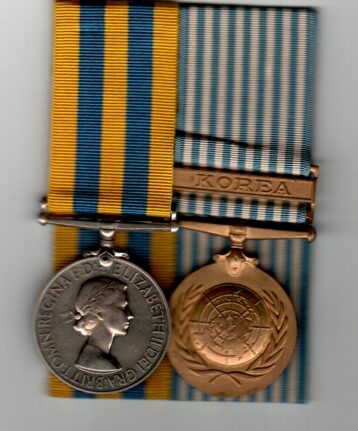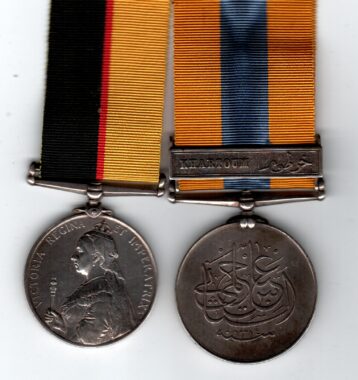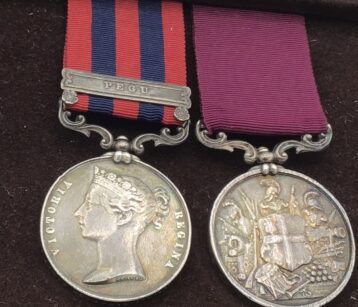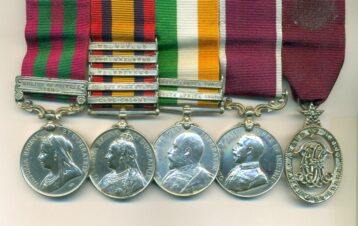Description
MMartin Kelly was born in Dublin in 1872, the son of Joseph Kelly of 18 Cochraine Street, Dublin. He served with the 4th (Militia) Battalion, Dublin Fusiliers from February 1890 with the number B. 2119 he then enlisted with the East Lancashire Regiment on 12 February 1891. Posted first to India on 26 November 1892 he was still serving here during the expedition to relieve Chitral in 1895, serving further until 28 February 1896 he then moved to Burma.
Returning to Britain after over five years in the East on 18 December 1897 he was married the next year on 1 November 1898 to Annie West. Posted again on 12 January 1900 when 1st Battalion, East Lancashire Regiment formed part of the reinforcement sent to South Africa during the Second Boer War. Here they served during the Guerrilla phase of the conflict, seeing action at Karee Siding and Zand River.
Posted back to Britain on 25 November 1902, a possible clue to his role in South Africa may be found in his attainment of a Mounted Infantry certificate on 2 October 1903. Kelly went on to serve with the regiment for some years, just prior to his discharge the Lieutenant Colonel commanding his Battalion wrote to the War Office and requested that he be placed on the registration roll of men for employment as Pensioner Messenger at the War Office.
He was discharged having provided notice on 30 April 1913 at Colchester, his discharge papers note his previous service included time as a Groom and an Officer’s Servant and that he had been in the RATA for six years; sold together with copied service records. he was awarded the Royal Army Temperance Association Medal of Merit R.A.T.A. 14 this officially named in the correct style. This presumably as a reward for his organisational skills within the regiment R.A.T. association (see page 73 of A Guide to Temperance medals. 2nd edition by David Harris).






